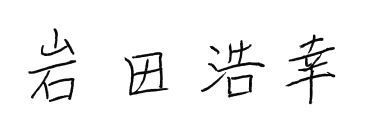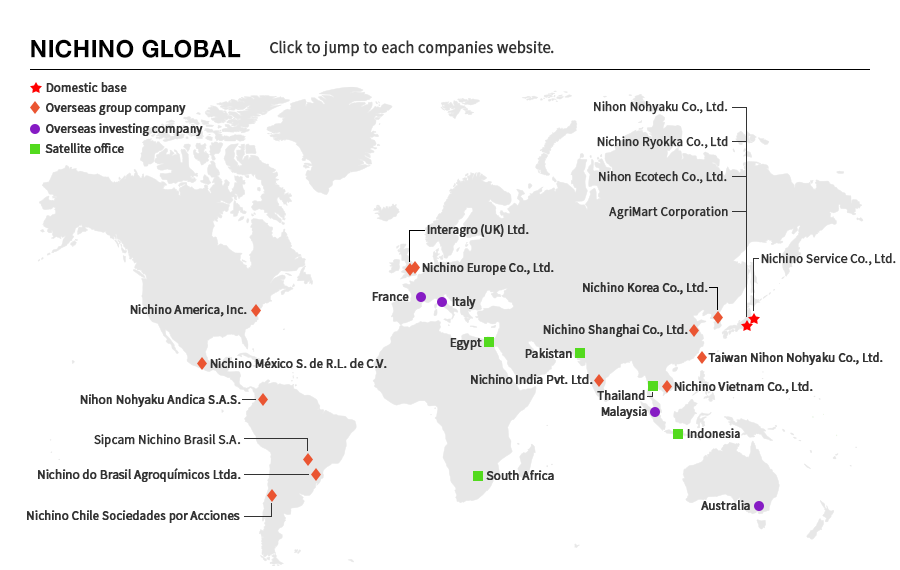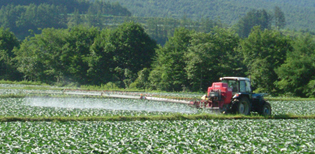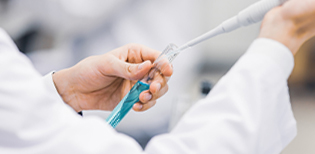Commitment of Top Management
Solidifying our Position as a “Global Innovator for Crop & Life”
Contributing to solving global food problems
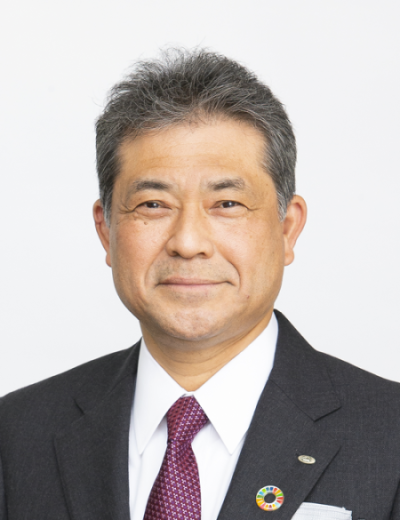
The state of the world recently, to put it briefly, continues to be in a period of major transformation, and rapid, diverse changes are likely to take place going forward beyond levels already seen.
Looking back at these past five years in particular, COVID-19 that first emerged at the end of 2019 expanded repeatedly in waves throughout the world. The movement of people and goods was restricted, and this heavily impacted the world economy and people’s daily lives. Remote work and other forms of digital transformation (DX) accelerated, so that even the way people work has been affected. Then, in February 2022, when this impact had begun to subside, Russia launched an invasion of Ukraine. The chaos in the countries, which are both major suppliers of wheat, corn, and other commodities, caused export restrictions to be placed on agricultural products and energy prices to rise sharply, and there are still no signs of a resolution in sight. These two major events have negatively impacted the globe both politically and economically and have made the outlook going forward unclear.
From an industrial standpoint, the realization of “Society 5.0 as a future society that Japan should aspire to,” which was proposed in 2016 in the Cabinet Office’s 5th Science and Technology Basic Plan, has finally become a realistic prospect through the rapid technological innovations and DX initiatives that have followed. The systematic utilization of advanced technologies as aimed for by Society 5.0 has the potential to steadily accelerate global economic development and solutions to many issues facing society.
The changes from a social perspective are the increased importance of CSR at companies and the increased scale of their CSR management initiatives. This is in line with the same trend as the thinking on ESG investment as a social responsibility from the perspective of stakeholders. This trend emerged fully in the 2000s, and then in 2015 the United Nation’s unanimous adoption of the SDGs, called the common language of the world, determined that the promotion of CSR and ESG management would become a global trend. The social requirements placed on companies will continue to expand going forward.
Among them, one issue directly related to the business of the Nihon Nohyaku Group is the increasing population and the food problems that result. The world’s population has topped 8.0 billion people, and it is said that around 10% face starvation. The food problem, including food security, is garnering close attention. Another issue is the impact of climate change on the environment and agricultural production. Global warming inhibits the growth of certain crops and causes changes in the occurrence of pest infestations and weeds, raising the question of how to ensure stable, sustained food production. These issues have been put forth as global issues from an early date, but their severity has increased since the 2000s.
Achievement of the SDGs through business activities
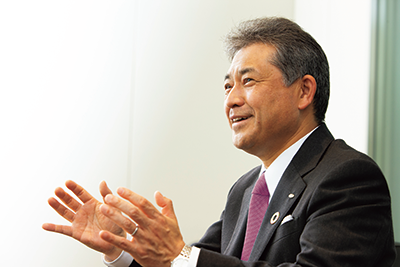
Nihon Nohyaku was established in 1928 as the first agrochemical manufacturer in Japan and has developed over time with a core business of research and development, manufacture, sales, and promotion of agrochemicals in order to protect crops from pest infestations and weeds. Over the course of its history, Nihon Nohyaku has contributed greatly to the stable supply of food by ensuring crop yields and improving quality. The agrochemical business is directly connected to agricultural production, which is essential to human survival and activity, and further is deeply related to people’s dietary lifestyles.
Interpreting the contents of the “SDG Compass,” which was created to assist companies and adopted with the SDGs “2030 Agenda” at the United Nations Summit in 2015, by going back and looking at the process of their formulation, chemical companies are strongly called upon to actively participate and to demonstrate and develop their technological capabilities to simultaneously solve the two global-level issues of poverty and the environment. On this point, the Nihon Nohyaku Group, through its agrochemical business, has been directly involved in protecting the environment, including biodiversity, and solving problems through technological innovation with the goal of overcoming poverty and hunger, which is central to the SDGs. This is also evident in how the Basic Principles of the Nihon Nohyaku Group are in close alignment with the goals of the 17 SDGs.
The mission of the Nihon Nohyaku Group is to tackle urgent social issues at the global level and respond to the increasing demand for solutions, which means ensuring a safe and steady food supply as stated in our corporate philosophy. We are engaged in a new growth strategy with strong confidence and pride in the fact that the Group’s business is fully capable of fulfilling this mission.
In aiming for growth over the medium to long term, an important perspective is the relationship between agrochemicals and the environment. The insecticides, fungicide, and herbicides that are synthesized with organic chemicals, the core of the Group’s agrochemical business, act on the physiological function of various organisms that make up an ecosystem. At the same time, the organisms that make up that ecosystem are composed of diverse species regardless of economic value, and in agrochemical exploration and development it is no easy matter to have a compound selectively demonstrate effectiveness against pests as opposed to their natural enemies, pathogens as opposed to beneficial microorganisms, and weeds as opposed to crops. This is a hurdle that is inherent in the research we do.
Moreover, agrochemicals are sprayed directly on crops and cultivated land, so they naturally flow into the surrounding environment and have the potential to come into contact with an unspecified number of people through the distribution and consumption of harvested crops. This process gives agrochemicals a special character that differs from pharmaceuticals and other chemical products. Which means consideration must be constantly given to their balance with the environment for the effective use of agrochemicals.
In recent years in particular, with the Farm to Fork Strategy in Europe and Sustainable Food Systems Strategy “Midori” in Japan, there has been demand in society to reduce use of agrochemicals on a risk-converted basis. Based on these developments, the Nihon Nohyaku Group is fortifying its efforts to develop eco-harmonized products that give greater consideration to environmental conservation.>
Promoting CSR management to raise corporate value
Corporate value is raised by contributing to all stakeholders through business activities and by helping to build a sustainable society. Since its founding, Nihon Nohyaku has developed its business through various phases with an awareness of its relationship to society and the environment. In particular, scientific thought related to safety assessment standards for products continues to be passed down today as the foundation of an R&D-driven company. We believe that the continued expansion of R&D is a major driving force for raising corporate value.
At the same time, it is the individual employees who perform all business activities. Establishing a comfortable, rewarding work environment for all, building relationships between people, and developing human capital serves as a primary foundation supporting corporate value. For this reason, expansion of human rights management has been established as a priority issue of our CSR activities, and we are working to steadily raise corporate value starting with our current surroundings.
With CSR being conceptualized and applied to companies as a requirement of society starting in the 2000s, ESG investment being conceptualized and put into action by investors, the SDGs being adopted by the United Nations in 2015, and also the Corporate Governance Code being established, Nihon Nohyaku for its part has worked to build a CSR promotion system and reinforce its functions.
We built the framework of our CSR promotion system in October 2020 and formulated our CSR Basic Policy, Seven Priority Issues, our Ideal business model for 2030, and also KGI, KPI and action plans as part of our current medium-term management plan to 2023. The Group CSR Basic Policy has been made the backbone of our Basic Principles, Action Charter, and Group Vision, meaning CSR activities are positioned as the foundation of management. We have clearly stated that we will promote CSR management based on both economic value, the original purpose of a company, and social value, which can be difficult to visualize, and will contribute to a sustainable society.
Selection and progress of Seven Priority Issues
In selecting the Seven Priority Issues, first, a working group composed of members from relevant divisions, including the Internal Control & Audit Department, and the Environment Safety Department, who were involved in editing the RC report at the time, comprehensively identified related activities, initiatives, and issues in the respective areas of their responsibility. We then organized this into a table for comparison with the 38 issues in the seven core subjects of ISO 26000, a global set of guidelines for CSR activities, and determined priorities based on importance from a management perspective and the status of activities at the time with respect to the issues identified. We next performed another analysis based on managerial importance and the importance to stakeholders and finally reformulated the information into Seven Priority Issues based on the relationship between the ISO 26000 comparison table and our actual situation. As a result, our Seven Priority Issues are founded on the comprehensiveness of ISO 26000’s seven core subjects. Compliance, risk management, and business continuity planning (BCP) are grouped together as general ESG items, and the remaining six issues express the specific direction of our CSR activities.
The progress made this year on the Seven Priority Issues is as follows.
E: Raising the level of environmental management (environmental conservation, RC activities)
Our business is deeply connected to the environment , and this is an issue that historically we have been involved in from very early on. As of 2021, we added “set and manage numerical targets to reduce environmental impact” as one of our major initiatives, coordinating with overseas sites in India, Brazil, and elsewhere through consolidated management. In Japan, joint work between the Production Division and Group company Nichino Service became a strong driving force.
In addition, our measures as a member of the ADEKA Group were also promoted in a coordinated manner. And in February of last year, the Nihon Nohyaku Group announced a GHG reduction policy timed to our declaration of support for TCFD. Presentation of a Group policy represents major progress in our environmental initiatives.
We plan to achieve carbon neutral by 2050 in Japan and Brazil, and by 2070 in India. These dates are in line with the goals of the governments in each country.
S: Expansion of human rights management (D&I, human resource development)
This term we formulated overall action plans regarding human rights due diligence. The human rights policy is the most important aspect of these plans, and going forward we will put them into concrete form on an expedited basis.
In addition, based on the Basic Procurement Policy related to human rights protections on the supply chain, we administered a procurement questionnaire survey to our domestic suppliers. As a result, we were able to analyze the initiatives of the companies at a certain level and clearly present a stance toward initiatives for our own CSR management. We recognize that there is room for improvement in the survey method, but one positive result was how the questionnaire helped us identify issues while providing hints for the next stage.
In connection with promoting women’s participation and advancement in the workplace, we did not fully achieve our numerical targets for the rate of female managers and other goals, but there has been improvement over time. We are also involved in initiatives for human resources development and personnel exchange at the global level.
Further, in strengthening health management, we have been recognized as a Certified Health & Productivity Management Outstanding Organization and made eligible for financing by the Development Bank of Japan Employees’ Health Management Rated Loan Program.
S: Enhancing the safety culture (occupational safety & health, product safety)
As a member of the chemical industry, ensuring safety in business activities is an overriding issue for the Nihon Nohyaku Group. We recognize four types of safety other than environmental safety (labor safety, product safety, logistics safety, and facilities safety) and have stably and continuously carried out basic activities for them. Carrying out activities continuously is most important.
Regarding product safety, we have made a certain amount of progress through such measures as maintaining related product and quality management systems. At the same time, in light of the serious accident that occurred at an overseas manufacturing site, we have reorganized the previous Environmental Safety Department into the Environment Safety & Quality Assurance Department to fortify supervision and control functions with respect to safety.
S: Development of technologies and products that meet needs of society (pursue to satisfy our customers)
This includes development of technologies and products that meet social requirements and needs as well as efforts to identify new customer needs and enter new business fields.
With reducing agrochemicals becoming a policy globally, Nihon Nohyaku announced its intention last year to develop eco-harmonized products. This applies to the new field of crop aid products like biopesticides and biostimulants as well as to chemically synthesized agrochemicals, so for us, as a dedicated agrochemical manufacturer, we have set a lofty goal. Discussions on their definition and selection criteria are in progress.
Through the development of technologies for labor-saving and for reducing environmental impact, we have obtained results that are nearly in line with our numerical targets. In addition, for our AI app for pest infestation and weed diagnosis, which supports the expansion of smart farming, we further enhanced its functions and steadily expanded it to Group companies at overseas sites in Asia and also in the segment of sanitary pests.
S: Community involvement (dialogue with stakeholders)
This is an issue related to dialogue with society. Currently, with the full-fledged development of the Group’s CSR activities, we have been working to provide appropriate information. Last year, we worked to revise our CSR Report and the CSR section of our website, which are the most effective tools for communicating information, in line with the standards of the Global Reporting Initiative (GRI).
In addition, with a view to reinforcing global branding, we consolidated the Group’s logo through an in-house promotion project related to overseas business development.
At the Research Center, Naganuma Nursery, and Nichino Service, we gradually began accepting visitors again for factory tours and laboratory tours, which had been suspended due to the COVID-19 pandemic.
G: Strengthening corporate and organizational governance (corporate governance, CSR management)
To strengthen our governance system, we have made multifaceted considerations that have included an independent survey on the efficiency of audits and the effectiveness of the Board of Directors. We will continue to consider the establishment and reinforcement of governance systems at overseas Group companies as a means of promoting consolidated management and responding to globalization.
Overall ESG: Expansion of compliance and risk management (sustainability management, BCP)
Fundamental background issues in CSR management promotion are grouped together here as general ESG items. This means the main relevant divisions necessarily participate in an interdepartmental manner, which allows us to effectively address the issues from a broad perspective that is more multifaceted.
For compliance and risk management, we worked to visualize issues and measures among Group companies to strengthen consolidated management. Bolstering functions on a cross-organizational basis will be more and more important in the future.
In recent years, disclosing information related to CSR and ESG management has become more strongly required. So, based on the Group’s promotion policy for CSR management, we have responded to a variety of external initiatives that have included giving our signature to the United Nations Global Compact and expressing our support for the Task Force on Climate-related Financial Disclosures (TCFD). We believe that appropriately communicating activities related to CSR promotion to all stakeholders also serves to increase the transparency of management.
Toward global growth
FY2023 (125th fiscal year), the last year of our medium-term management plan, will be an extremely important year for Nihon Nohyaku. We will work for sustainable growth by achieving our forecasts of consolidated net sales of 104.5 billion yen, an increase year on year, and consolidated operating profit of 8.3 billion yen. Though small in scale, Japanese agrochemical manufacturers continue to create new agents, earning high marks globally for their R&D capabilities. We intend to fully leverage the strengths of the Nihon Nohyaku Group and further raise our presence as a global company.
In our domestic sales activities, the foundation of Nihon Nohyaku, we will collaborate and promote the sale of proprietary products and Corteva products, and in overseas sales activities, which are our growth driver, we will further bolster sales and expand our area. We will actively expand our business all over the world. Moreover, by strengthening coordination with Group companies and working to bring active ingredient production in-house and reduce costs via purchasing on advantageous terms, we will ensure a resilient management foundation and a stable earnings structure that are resistant to global inflation and exchange rate fluctuations.
As for new fields, we will work to establish semi-fermented production technology and quickly commercialize businesses for pharmaceuticals, animal health products, biopesticides, and crop aid products. In industrial and pharmaceuticals sales, we will harness new ideas not bound by current convention. Moreover, domestic Group companies will leverage their strengths for further growth. This area is expected to drive the Group overall not only in existing business but through expanding our domain as well.
With the further development of DX, we will realize smart agriculture, smart factories, R&D promotion, appropriate inventory management, and also reinforcement of business infrastructure through more transparent Group company management.
We will also focus on promoting CSR and ESG management and plan to strengthen the “NICHINO” brand and set goals for and disclose non-financial information. The Nihon Nohyaku Group will tackle these issues on a unified basis, achieve sustainable increases to corporate value, and produce results that will lead into our new medium-term management plan, which will aim even higher. Since its founding, Nihon Nohyaku has contributed to stable food production by providing agrochemical products to eliminate pest infestations and weeds. These business activities themselves contribute to CSR and stand as our raison d’être, a fact we are proud of. This will not change for as long as Nihon Nohyaku does business.
Going forward, under our corporate statement of “Global Innovator for Crop & Life,” we will continue to provide advanced technologies that meet societal needs in a wide range of fields, agrochemicals first and foremost, but also pharmaceuticals and animal health products. We will take on challenges to ensure a stable food supply and improve quality of life. And through our CSR activities, we will contribute to the realization of a sustainable society.
President and Representative Director
